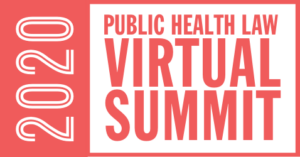
Civil Rights and Public Health
Concurrent Session Block 2: 2:30 – 3:30 p.m. ET Wednesday, September 16
Presentations
The Endless Looping of Public Health and Scientific Racism
COVID-19 has exacerbated deeply divisive fissures of race, ethnicity and American political identity. There is a new intensity to the way that race, racism, and health risk have been jockeying for headlines. Given a global pandemic and a federal administration desperate to salvage its reelection prospects, questions of distributive justice—from vaccines to ventilators to triage—have become complicated by some very destructive ideas. This session will examine why it is imperative that terrible old ideas about race are not injected back into public policy practice in ways that threaten to create whole new regimes of discrimination, segregation and “race science.”
- Patricia J. Williams, JD, Northeastern University School of Law
Fostering the Civil Rights of Health
This session will discuss “the civil rights of health,” an approach that enables civil rights and public health advocates to amplify their effectiveness by partnering with organizations that fight discrimination. Pandemics, like climate disasters, thrive on inequality. COVID-19 is no exception, flourishing where inequality has weakened the social fabric. One of these weaknesses is long-standing racial discrimination, which has produced unjust, racialized disparities in COVID-19 transmission and mortality, and disproportionate economic harm to people of color. Efforts to address these racial disparities have been hindered by a series of governance and advocacy disconnects. One promising tool to bridge these disconnects is research on the social determinants of health. Highlighting the ways in which discrimination is a public health problem allows legal advocates to use civil rights law as a health intervention and public health advocates to squarely challenge discrimination.
- Aysha Pamukcu, JD, Founder, Movement Praxis